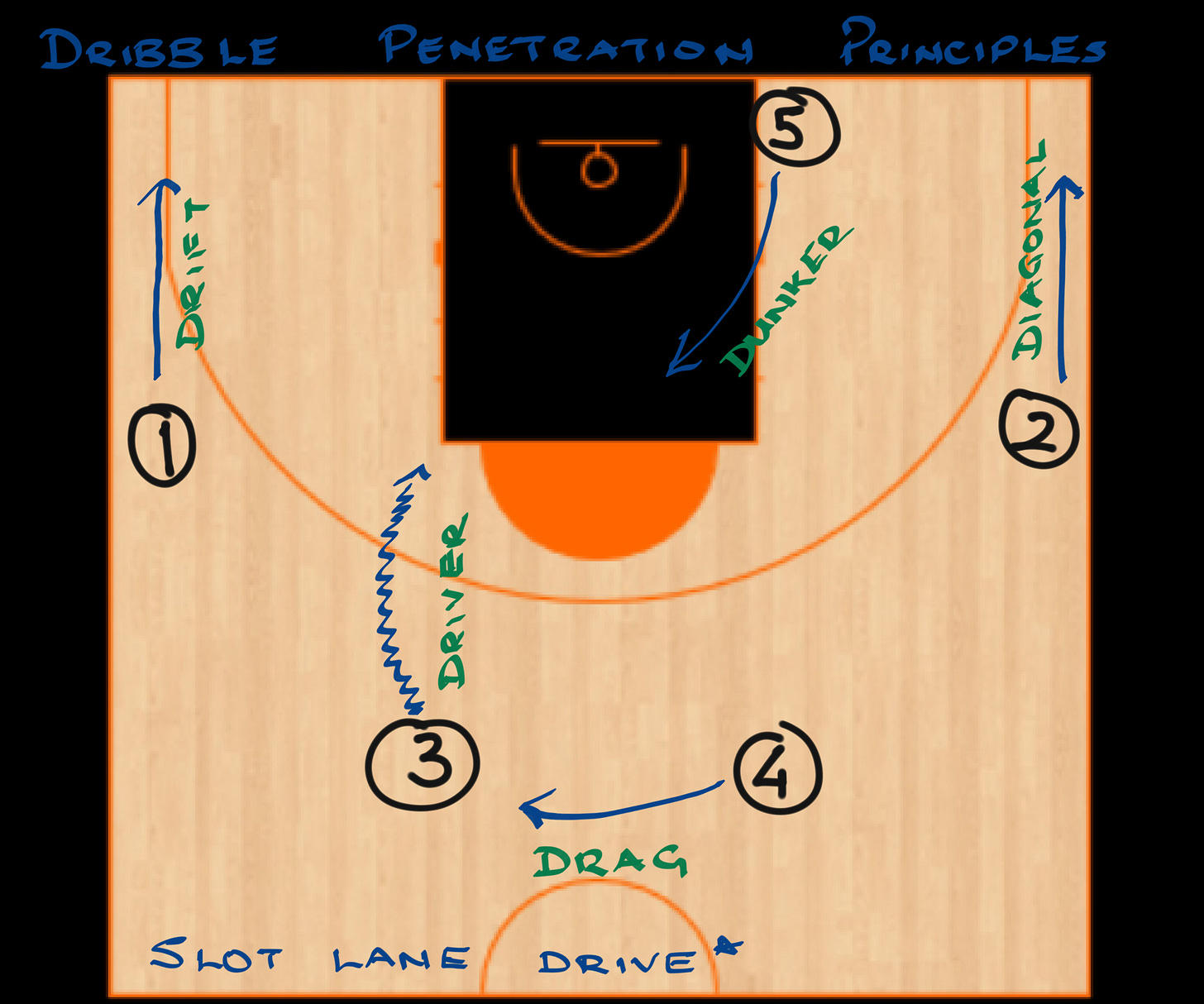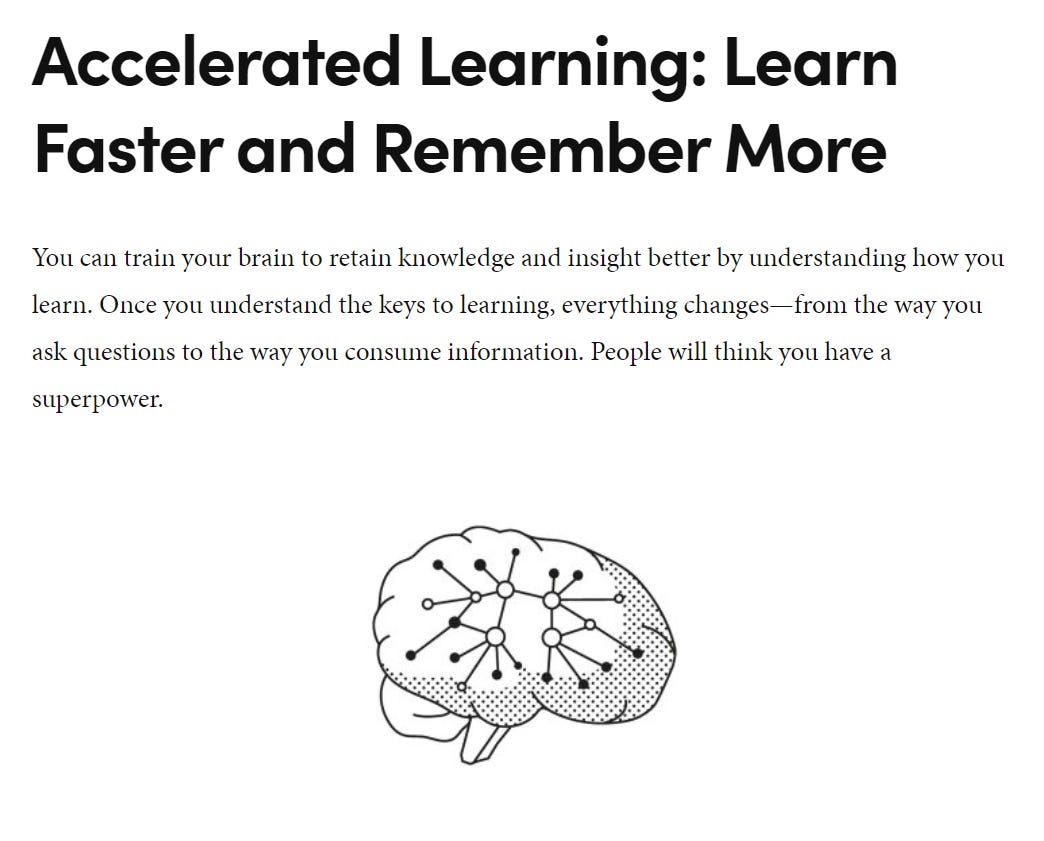Episode X: Personal Growth, Building Cohesion in Teams, Dissin Upwards & Basketball X's & O's.
"One can choose to go back toward safety or forward toward growth. Growth must be chosen again and again; fear must be overcome again and again" - Abraham Maslow
Every week, I share a couple of things that I’m reading, learning or actively doing in my personal and professional life. This week, we dive into:
Current Learning: None 😥😥
Practice Idea: Cohesion & Camaraderie
X’s & O’s: Dribble Penetration Principles
Leadership Thought: Upwards Never Downwards
Recommended Article: Accelerated Learning
Reflective Question: On Long Term Decisions
Current Learning: None 😥😥
This was an insanely busy week for me for a variety of reasons. As such, all my streaks reset (yes, I am a grown man who was quite proud of not Breaking the Chain).
Regardless, I am resetting and starting over again.
Consecutive Days Read - 0
Consecutive Days Meditated - 0
Consecutive Days Wrote - 0
Consecutive Days Learned - 0
Consecutive Days Drew - 0
Consecutive Days Drank 8 Glasses of Water - 0
Here we go again. . .
Practice Idea: Cohesion & Camaraderie
Almost two years ago, I coached a team that was just a group of players who came together to play. They had nothing in common and didn’t want to spend any time with each other before or after practice.
There’s nothing inherently wrong with that. After all, everyone is involved for different purposes. The thing that bothered me about that atmosphere is that it showed up in our gameplay and general attitude towards one another.
After a particularly poor practice one day, we sat down to discuss some things and deal with the underlying issues. What emerged was quite interesting, to say the least. Without diving into specifics, this meeting led to the formation of the end of practice closure.
EPC (End of Practice Closure) is all about signing off with your teammates after practice and we wanted each of our players to complement one of their teammates on something that they did well in practice that day and one thing that they were going to do better in practice the next time.
It started out rather shakily, but by the time the end of the season rolled around, our team was better for it. We were more together on and off the court, with barriers being brought down as players were more willing to be vulnerable in a safe environment.
I haven’t done that since before the corona pandemic, but it is something that I am thinking of bringing back in.
X’s and O’s: Dribble Penetration Principles
This week we’re looking at Dribble Penetration Principles. At Basket Swans Gmunden, we emphasise these principles from an early stage, often working on them even when our players don’t know that’s what we are doing.
Regardless of level, the gameplay will break down at some stage, as a player goes off-script. We want our players to know what to do in these instances. Rather than panic and breakdown, we want our teams to be anti-fragile and actually be stronger and more resilient in these breakdowns.
By teaching principles of play, and consistently working on them in practice, we instil the confidence and instinct needed for these to become second nature. Check out the full article which breakdown our movement patterns, and offers some shooting segments and small-sided games to work on dribble penetration principles.
Leadership Thought: Upwards Never Downwards
This is something that is quite difficult and I only think that I am coming around to it now. Once a decision is made upstairs (not an actual place, but rather the people above you in the hierarchy), it becomes yours to manage and own. That’s what it means to be a leader.
Even if you disagree with it, you shouldn’t allow those that you lead to hear or see your disagreements. It becomes yours. That means that you have to align those who trust you towards this shared purpose and goal, even if you were against it.
It is counterproductive to pull against this agreement and cause divisions within the team. If you have complaints, take them upstairs, but never voice them downstairs.
Personal Example: Last month, we had a meeting about how we wanted to proceed with the development of certain players within our programs. The benefit of having multiple people in the room is that there are differing opinions, which is always good to see.
The issue is then agreeing. In this case, the players’ direct reports heard the different opinions and a conclusion was drawn up. A conclusion which I disagreed with and thought was not the best decision. I had voiced my opinion in the meeting, but nonetheless, there can only ever be one driver (one person in charge, who makes the final call).
I slept on it and in the morning, I still felt the issue weigh heavily on me, so I contacted two of the people in the meeting and arranged a meeting with them separately. One of whom was the man in charge. At the outset, I highlighted that I wasn’t looking to change a decision or have a meeting after the meeting. I wasn’t looking to discuss the ins and outs. I just needed to rant and it would be best to get this off my chest behind closed doors with them, rather than carry it with me to anyone else.
That’s literally what happened. I spoke and got it off my chest and then changed the subject. I don’t know if that was the best way to handle it and I’m not sure how to handle these issues moving forwards. I do know that I am not always going to agree with every decision made in a team setting. Still, I need to be able to function in a team and contribute, so in the above case, I feel like I handled it appropriately as I spoke directly with the people involved and didn’t get distracted with bitching and moaning, rather I ranted and it was over. We didn’t need it discussed again.
I’d love to hear how you would deal with a case like that.
Recommended Article: Accelerated Learning
There is no better website than Farnam Street when it comes to self-improvement. Shane Parish does a great job in compiling the best that is out there to help you distil from all the noise.
This page (not really an article) compiles a lot of info from what prevents us from learning to helpful techniques that we can apply today to a tonne of resources that you can get lost in to help the learning process.
Reflective Question: On Long Term Decisions
How do you approach making a life changing decision?
That’s all for this week. If you found this interesting, I would appreciate you sharing it on your social media accounts.
Until next week.
Nabil Murad





